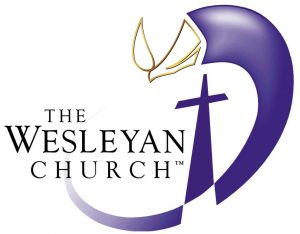Turnpike Wesleyan Reflections
October Newsletter
A minister, a boy scout, and a scientist were the only passengers on a small plane. The pilot came back to the cabin and explained that the plane was going down but there were only three parachutes and four people. The pilot then added, “I should have one of the parachutes because I have a wife and three small children.” So he grabbed a parachute and jumped. The scientist jumped up almost immediately and said, “I should have one of the parachutes because I am the smartest man in the world and everyone needs me.” So he took one and jumped. The minister turned to the Boy Scout and with a sad smile said, “You are young and I have lived a rich life, so you take the remaining parachute, and I’ll go down with the plane.” Then the Boy Scout said, “Relax, Reverend, the smartest man in the world just picked up my backpack and jumped out!”
One man’s boast can be another man’s salvation. If any man had room for boasting, the apostle Paul certainly did. He could have boasted for any number of reasons. In Philippians 3:4 he states, “If anyone else thinks he has reason to boast, I have more.” He was circumcised on the eighth day. He was born into the right family, the tribe of Benjamin. He was very faithful to his religion; he was as religious as they come. He kept all of the rules. But he counted all of that as worthless. The Apostle’s boast wasn’t in his achievements or his accomplishments – it wasn’t in anything but Christ.
In Romans chapter one, Paul calls himself a “debtor” both to God and to God’s people. His message is as simple as this: “People all around us need the Lord Jesus Christ and we have the God News to share.”
Suppose the governor of this state were to hand you a pardon for a man on death row. And it was up to you to deliver that pardon. Suppose the Governor said, “I’m giving you the honor to take this pardon to the warden and to see that this man is set free.” So you put that pardon in your pocket and with good intentions you are going to deliver that pardon. But in the meanwhile you had some shopping to do, and then it dawned on you that the lawn needed mowing, then you get an invitation to go golfing with some friends, and in the meanwhile you book a family vacation. After all is said and done, you then pick up the newspaper and read where a man has been put to death – the very man you had the pardon in your pocket to free.
How would you feel? I tell you there are souls all around us that are about to be plunged into Christ-less eternity and you and I have the message or the pardon to deliver. This is why Paul considered himself a debtor to those around him.
Summer Edition
There is an old story about a man by the name of John Griffith, who lived in Oklahoma in 1929. He had lost all he had in the stock market crash. He moved to Mississippi where he took a job as bridge operator for a railroad trestle.
In 1937 he was involved in a horrible accident. On one occasion his 8 year-old son, Greg, spent the day with his dad at work. The boy poked around the office and asked dozens of questions – just like little boys do. The bridge was over a river and whenever a ship came, John had to open the bridge to allow the ships to pass.
The day the boy was there with his father a ship was coming, so John opened up the draw bridge. After a moment or two he realized his son wasn’t in the office and as he looked around, to his horror, John saw his son climbing around on the gears of the draw bridge. He hurried outside to rescue his son but just then he heard a fast approaching passenger train, the Memphis Express, filled with 400 people. He yelled to his son, but the noise of the now clearing ship and the oncoming train made it impossible for the boy to hear him.
All of a sudden John Griffith realized his horrible dilemma. If he took the time to rescue his son the train would crash killing all aboard, but if he closed the bridge, the boy would be crushed in the gears.
John ended up sacrificing his son. He made the horrible decision, pulled the lever and closed the bridge. It is said, as the train went by John could see the faces of the passengers, some reading, some even waving, all of them oblivious to the sacrifice that had just been made for them.
I just shared with you the story of John Griffith and the bridge. Did you know that God once faced a similar dilemma. He could not save sinners and spare Jesus as well. How could He be just and justifier at the same time? God had to allow the jaws of death to close in on either us or on his son. I am so thankful that He allowed Jesus to give up His life for us.
However, millions every day go by oblivious and indifferent of this sacrifice. There also is one tremendous difference between the two fathers. Unlike the Memphis Express that caught John Griffith by surprise, sending Jesus was not a panic move. It wasn’t a spontaneous decision. It was planned. Paul said in Gal 4:4 … “But when the time had fully come, God sent his Son.”
Jesus’ death was not the result of jealous Jews or hard-hearted Romans. It was the result of a loving God who saw there was no other way to save man. We all know what John 3:16 says, but do we also know what 1 John 3:16 says? 1 John 3:16 … “This is how we know what love is: Jesus Christ laid down his life for us. And we ought to lay down our lives for our brothers.” Matt Redman put it well in the song entitled, “This is how we know.”
June Newsletter
Life is full of choices. We choose our cars, our homes, our jobs, our classes. We choose to be good employees or poor employees. We choose to be good parents or bad parents. We choose to pay our bills or to allow the collector to come for them. Life is made up of choices.
You may not be fully aware of it, but we also choose the attitudes that dictate our lives. Our attitudes are not so much based upon our circumstances as they are our choice to either be positive or negative in those circumstances. God chooses what we go through. We choose how we go through it.
I came across the following story that you might find interesting. There was a man whose name was Edwin Thomas, a master of the stage. During the latter half of the 1800’s, this small man with a huge voice had few rivals. Debuting in Richard III at the age of fifteen, he found unrivaled success with his abilities to act out the great dramas of Shakespeare.
In New York City, for one hundred consecutive nights he performed Hamlet and even in London where the tough British critics lived he won favor in their hearts with his acting skills.
When it came to difficulties in life, Edwin Thomas was quite acquainted with those also. Edwin Thomas was not alone for he had two brothers, John and Junius. They too, were actors, although they were not nearly as gifted as was Edwin.
In 1863, the three brothers performed together in Julius Caesar. The fact that Edwin’s brother took the role of Brutus was almost an eerie foreboding of what was to occur in just two years.
One little decision would not only affect the brothers but an entire nation. This same John who played the assassin in Julius Caesar is the same John who would play the role of assassin in Ford’s Theatre. On a dark April night in 1865 with the Civil War pulling at the heart and soldiers of a divided nation, John walked into the theater and fired a bullet at the head of Abraham Lincoln. You see, the last name of the brothers was Booth—Edwin Thomas Booth and John Wilkes Booth.
That night would mark Edwin forever. He would never be the same again. The shame from his brother’s crime drove him into retirement. He might have never returned to the stage had it not been for a twist of fate at a New Jersey train station. Edwin was awaiting his coach when a well-dressed young man, pressed by the crowd, lost his footing and fell between the platform and the moving train. Without hesitation, Edwin locked a leg around the railing, grabbed the man, and pulled him to safety. After the sighs of relief, the young man recognized the famous Edwin Booth. Edwin, however, did not recognize the young man whom he had rescued. That knowledge would come to him a few weeks later in a letter, a letter that he would carry in his pocket to his grave. It was a letter from the chief secretary to General Ulysses S. Grant. It was a letter thanking Edwin Booth for saving the life of the child of an American hero, Abraham Lincoln. How ironic that while one brother killed the president, the other brother saved the president’s son. The boy that was yanked to safety was none other than Robert Todd Lincoln.
When Paul commands Timothy to fight the good fight of faith, sometimes we have this rather romantic picture of Christians slaying demons and overcoming the forces of evil. But the major point Paul is making is the fact that the real battle we engage in involve the decisions and the attitudes we make each and every day that reveal just how much or how little our relationship with Jesus means to us.
Turnpike Wesleyan exists to honor God by making more disciples for Jesus Christ. We endeavor to do this by connecting through worship, growing through Life groups and serving in community & ministry projects.

